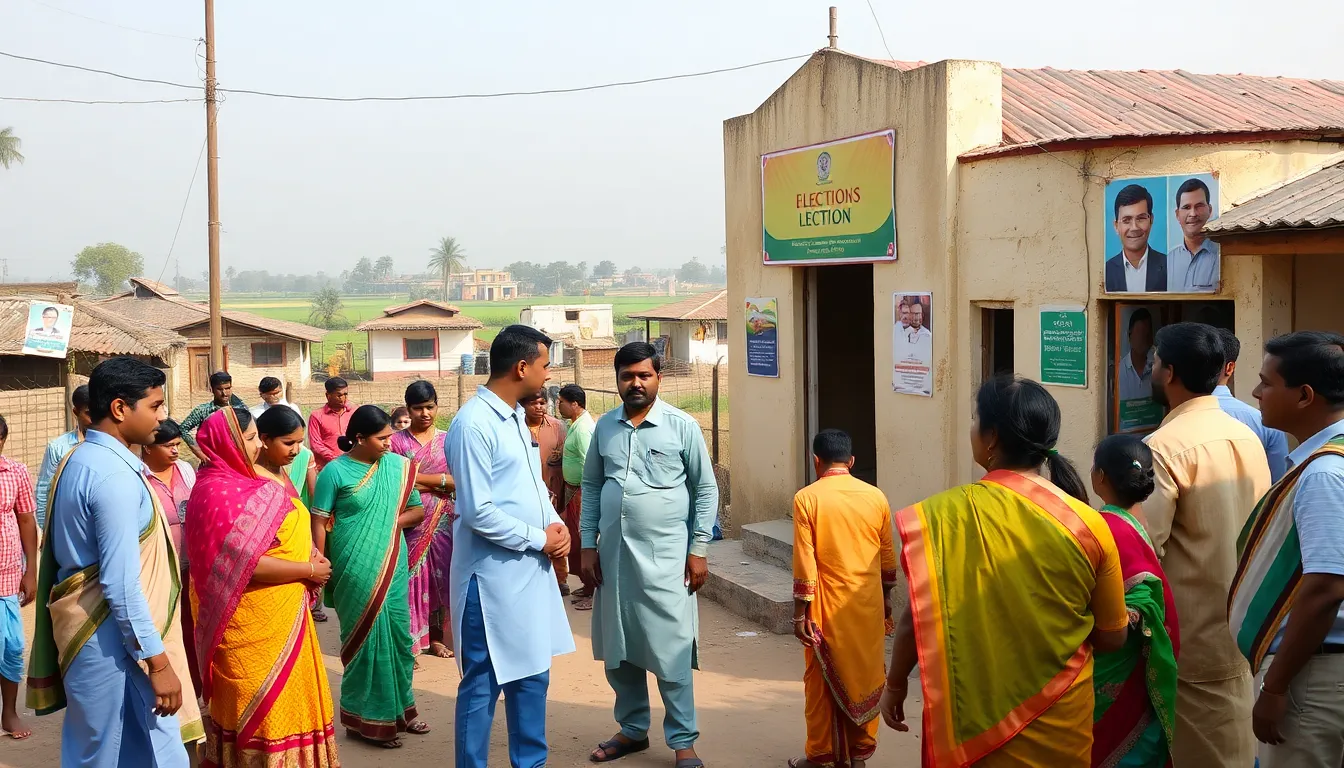In Gujarat, the elections for the 21 gram panchayats in Amod taluka have reached a significant stage. Today marked the final day for withdrawing nominations, and the picture has become clearer regarding the election outcomes. Out of the five panchayats that will hold general elections, three have become uncontested. These are Asanera, Sudi, and Vadiya gram panchayats. The election for the sarpanch in Machhasara gram panchayat will still take place, but several wards are uncontested. Specifically, wards 1, 2, 5, 6, 7, and 8 are uncontested, while elections will be held for wards 3 and 4.
Similarly, in the Bodka gram panchayat, the sarpanch election will occur, with wards 2, 3, 5, 6, 7, and 8 being uncontested. Elections will be conducted for wards 1 and 4. The mid-term elections will also take place in the Sarbhan village panchayat, where wards 1, 2, 3, 4, 5, 6, and 7 are uncontested, while elections for wards 8, 9, and 10 will proceed.
In the Teloda gram panchayat, the mid-term sarpanch elections will occur, where wards 1, 3, 5, and 8 are uncontested. Elections will still be held for wards 2, 4, 6, and 7. Additionally, for the by-elections in the Aachod panchayat, both wards 4 and 9 are uncontested.
In Ikhar panchayat, ward 4 is uncontested, and in the Ninma panchayat, ward 7 is also uncontested. The Chakalad panchayat has ward 6 as uncontested, while ward 8 received no nominations. The Itola gram panchayat will conduct the sarpanch elections, but wards 1 and 8 did not receive any nominations. In the Matar panchayat, ward 7 is uncontested, and in the Ranipura panchayat, ward 6 is also uncontested. Finally, in the Kolvana panchayat, ward 2 is uncontested.
This situation reflects the political dynamics in Gujarat, where many panchayats are seeing uncontested elections. These trends could indicate political stability in some areas, while also raising questions about competition and representation in local governance. As the elections progress, it will be interesting to see how these uncontested positions affect the governance and development in the region.
The Amod taluka elections are part of a larger political landscape in Gujarat, where the local governance structure plays a crucial role in managing resources and representing the interests of the people. As the electorate prepares for these elections, the outcomes will likely shape the future of community leadership in the area.


Leave a Reply